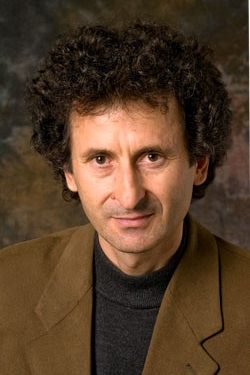Vincenzo Cirulli, MD, PhD
Email: vcirulli@uw.edu
- Associate Professor of Medicine, Division of Metabolism, Endocrinology and Nutrition
- Home Department Website: https://endocrinology.uw.edu/
Vincenzo Cirulli received his MD from the University of Rome in Italy in 1986, and he then moved to the University of Geneva, School of Medicine, Geneva, Switzerland, to train as a postdoctoral fellow in the laboratory of Dr. Philippe Halban. In 1989 he received a Board Certification in Endocrinology and Metabolism, and in 1994 he was recruited as a Senior Research Fellow in the Islet Research Laboratory of Dr. Alberto Hayek at the Whittier Institute for Diabetes, University of California San Diego, La Jolla, California, where in 1996 received a JDRF Career Developmental Award and was appointed as an Assistant Research Scientist. In 1998 he completed a Research Doctorate in Endocrine Sciences and Metabolism through a joint program with the University of Rome (European equivalent of a PhD), and in 2002 was promoted to Associate Research Scientist. In 2009 he was recruited as Associate Professor to the Diabetes and Obesity Center of Excellence and the Institute of Stem cell and Regenerative Medicine, both at the University of Washington.
Dr. Cirulli has been serving on study sections in islet cell biology for the Swiss National Science Foundation, The Netherland Cancer Institute, the Juvenile Diabetes Research Foundation and the NIH.
Research Interests
The overall objective of the Dr. Cirulli’s research work is to understand mechanisms of islet cell development and function, with special emphasis on the role of cell-cell and cell-matrix adhesion receptors as instructive cues for developing islet progenitors. In an effort to develop strategies of possible translational value to human diseases, his research makes use of both, animal models and human ES and iPS cells.
The interest of Dr. Cirulli in cell adhesion receptors matured over the years from his former training in islet cell biology. Hence, his earlier work demonstrated that select adhesion receptors are responsible for the highly organized architectural arrangement of the different cell types within pancreatic islets of Langerhans. Building on those observations, his laboratory has uncovered important functions for a number of adhesion molecules expressed in the developing pancreatic epithelium. Some of them involved in pancreatic cell growth and expansion, some regulating basic cell adhesion and migration, others functioning as path-finding cues for the emergence of putative pancreatic progenitors from the pancreatic ductal epithelium. An important corollary of the dynamic expression of some adhesion receptors in distinct pancreatic cell types at select developmental stages is that they can also impart specific developmental decisions. It is from these latter observations that Dr. Cirulli’s current work aims at exploiting the signaling properties of select cell adhesion molecules to foster the development of insulin-producing cells from either ES or iPS cells.

